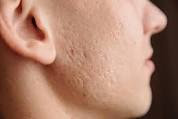Salicylic acid for Acne Scars
Salicylic acid is a popular skincare ingredient used to treat acne, but it can also be effective for reducing the appearance of acne scars.
Acne scars are often caused by inflammation and can be difficult to treat, but salicylic acid can help to exfoliate the skin and promote cell turnover, which can help to reduce the appearance of scars over time.
Acne scars are caused by damage to the skin’s underlying layers, which can result in uneven texture and discoloration. Salicylic acid works by exfoliating the skin and removing dead skin cells, which can help to improve the overall texture and appearance of the skin.
Salicylic acid is most effective for treating mild to moderate acne scars. For more severe scarring, other treatments may be necessary, such as laser resurfacing, chemical peels, or microdermabrasion.
Salicylic acid works by penetrating the pores and exfoliating the skin, which helps to unclog pores and prevent new breakouts. It also has anti-inflammatory properties, which can help to reduce redness and swelling associated with acne scars. Additionally, salicylic acid can help to fade dark spots and hyperpigmentation, which are common after acne.
It’s important to note that while salicylic acid can be helpful in reducing the appearance of acne scars, it may not be effective for all types of scars. Deep or severe scars may require more intensive treatments, such as laser therapy or chemical peels. Additionally, it’s important to use salicylic acid products as directed and to avoid over-exfoliating, as this can cause further damage to the skin. It’s always a good idea to consult with a dermatologist to determine the best treatment plan for your specific skin concerns.
Call now
on our Mobile 8669086098 for booking an appointment
To know
more about Dr. Amey Kelkar visit our website Derma Solutions




Comments
Post a Comment